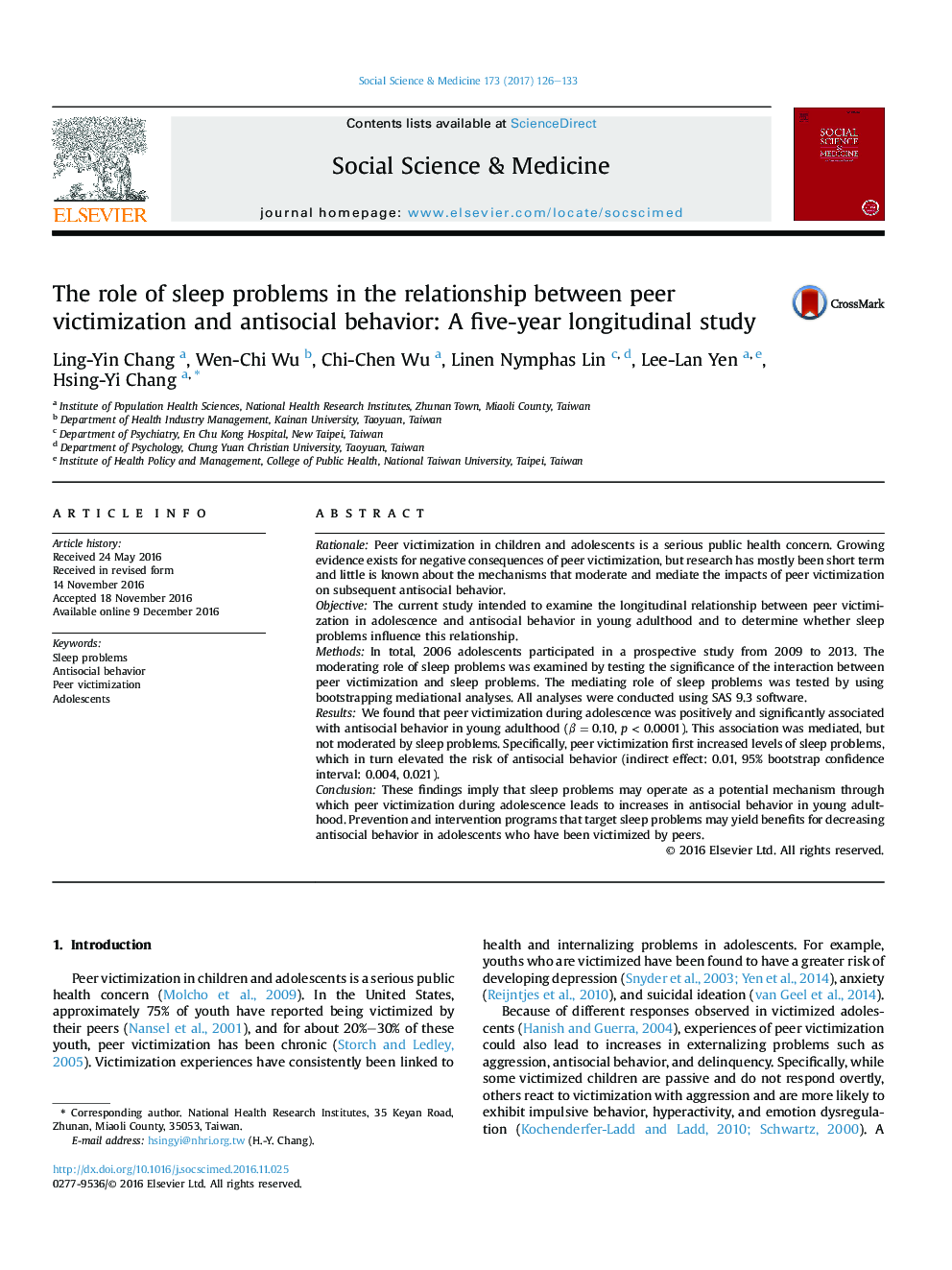| کد مقاله | کد نشریه | سال انتشار | مقاله انگلیسی | نسخه تمام متن |
|---|---|---|---|---|
| 5046777 | 1475996 | 2017 | 8 صفحه PDF | دانلود رایگان |
- We demonstrated an adverse effect of peer victimization on later antisocial behavior.
- Sleep problems mediate the link between peer victimization and antisocial behavior.
- Targeting sleep problems in victimized youths may help reduce antisocial behavior.
RationalePeer victimization in children and adolescents is a serious public health concern. Growing evidence exists for negative consequences of peer victimization, but research has mostly been short term and little is known about the mechanisms that moderate and mediate the impacts of peer victimization on subsequent antisocial behavior.ObjectiveThe current study intended to examine the longitudinal relationship between peer victimization in adolescence and antisocial behavior in young adulthood and to determine whether sleep problems influence this relationship.MethodsIn total, 2006 adolescents participated in a prospective study from 2009 to 2013. The moderating role of sleep problems was examined by testing the significance of the interaction between peer victimization and sleep problems. The mediating role of sleep problems was tested by using bootstrapping mediational analyses. All analyses were conducted using SAS 9.3 software.ResultsWe found that peer victimization during adolescence was positively and significantly associated with antisocial behavior in young adulthood (β = 0.10, p < 0.0001). This association was mediated, but not moderated by sleep problems. Specifically, peer victimization first increased levels of sleep problems, which in turn elevated the risk of antisocial behavior (indirect effect: 0.01, 95% bootstrap confidence interval: 0.004, 0.021).ConclusionThese findings imply that sleep problems may operate as a potential mechanism through which peer victimization during adolescence leads to increases in antisocial behavior in young adulthood. Prevention and intervention programs that target sleep problems may yield benefits for decreasing antisocial behavior in adolescents who have been victimized by peers.
Journal: Social Science & Medicine - Volume 173, January 2017, Pages 126-133
